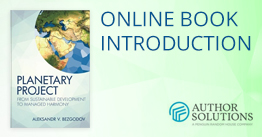People are actually happier when they make more money
31/01/2021
People are actually happier when they make more money: Wharton's study (January 22, 2021).
While the old adage says that money can't buy happiness, several studies have shown that the more your income increases, the happier you are, up to $ 75,000 a year. Once this threshold is reached, more income doesn't matter. The happiest people in the world have an average annual salary of $ 36,000.
The happiest country in the world appears to be Finland, and in its capital, Helsinki, the average salary is £ 27,936 (about US $ 36,000). This study follows the much-discussed Princeton University study in 2010, which found that emotional well-being rises only with income up to about $ 75,000 for Americans (or $ 86,000 in today's dollars).
According to a study published by the American Psychological Association, people who make more money tend to experience more positive, self-centered emotions, while people who earn less enjoy more of their relationships and their ability to connect with others. The researchers found that this life satisfaction rate ranges from $ 35,000 in the Caribbean to $ 125,000 in New Zealand worldwide. After that, "there comes a certain moment when it seems that money no longer brings benefits to well-being, both in terms of feelings and in terms of your assessment." Once enough money has been earned to cover basic needs, day-to-day purchases, and loans, people may be motivated to earn more than others or desire material gain. And that could be the tipping point where more money leads to lower wealth.
Yes, a family of 4 can live on 100,000 $ per year. According to the US Census Bureau, the median household income in the US is approximately 73 thousand $. With this income level, you will have to travel to work and not live in the most expensive cities like Boston, San Francisco and Manhattan. But more recently, a 2018 Purdue University study used much broader Gallup World Survey data and found that the ideal income point for people is $ 95,000 for life satisfaction and $ 60 to $ 75,000 for emotional well-being.
When people earned over $ 105,000, their level of happiness declined.
But even a decade later, experts say the amount of money people need to be happy will still be roughly equal to the median income of US residents, which, according to the latest 2018 US Census, is $ 63,179. "Money gives people the freedom to choose how they live," said Matthew Killingsworth, study author and senior fellow at Wharton who studies human happiness.
When experts measure happiness in research, they take into account people's emotional well-being, or how they feel on a day-to-day basis, and how satisfied they are with how their overall life is shaping up. For this new study, 33,391 hired people (ages 18 to 65) used a smartphone app that encouraged them to test their emotions throughout the day. The app asked them to rate: "How are you feeling now?" and "How satisfied are you with your life overall?" The findings are based on seven years of data collection. Make It that the relationship will continue regardless of the length of time. The data showed that all forms of wealth continued to grow with income across a wide range of income levels, and Killingsworth said it did not stop at $ 75,000 a year. “On an individual level, this suggests that as people move up the career ladder and their incomes rise, it can actually make their lives better (rather than hitting the ceiling when they hit $ 75,000),” says Killingsworth. ... At a broader social level, this could mean that “continued economic growth over the coming decades may still have the potential to improve human well-being,” he says.
So how is this discovery so different from previous research?
Previous studies on money and happiness have looked at how much people are generally satisfied with their lives. It depends on the ability of people to “remember exactly how they felt at different times in the past, and then accurately combine those memories into a single assessment,” the study authors write. But this study looked at how people feel during moments of life (experienced well-being) and how people assess their lives when they pause and reflect (estimated well-being).
During the Covid pandemic, income may make a bigger difference to people's happiness, Killingsworth said. For Example if you have a financial cushion, it will be easier for you to get through the period of unemployment, and if you have a high-paying job, you may be able to work from home and save - above all, your job, and all this will give you more free will in your life, ”he says. Ultimately, Killingsworth says income is only one factor in a person's happiness, but not the most important one. “If anything, people probably pay too much attention to money when they think about how well their life is going,” he said in a press release.
In fact, besides money, there are many factors that contribute to human happiness: other studies have shown that social relationships and connections are the most important factors in promoting happiness. Another thing to consider is how our work and earnings fit into our concept of success. In the Wharton study, people were asked, "To what extent do you think money is a sign of success in life?" Those who equated money with success were less happy than those who did not hold the same view. Other studies have shown that when people have jobs that give them meaning or purpose, they are happier, no matter how much money they make.









